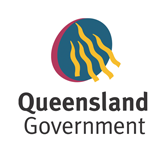History of the BCQ
A brief summary telling the amazing history of the council and how it has made and continues to make its valuable contributions to Buddhism in Australia.
Background Setting
The Buddhist Council of Queensland came into being in 1999, as a sequel to a number of somewhat unexpected events, one flowing from the other. There was an element of good fortune or rather the result of our good past kamma.
In early 1999, a delegation of senior Buddhist centre leaders meet with the then Minister assisting the Premier of Queensland, in relation to multi-cultural affairs.
Topics covered included the fact that Buddhism needs to be recognised fully as a religion, legally and administratively at all levels, that Buddhism was spreading fast, that there were no clear and proper channels of communication between the government and the Buddhist community, that there was no single recognised hierarchy in Buddhism, and that large numbers of migrants were Buddhists, and that the government owed certain duties to the Buddhist community, and Buddhists owed certain duties towards the government and the wider community, if peace, harmony, freedom and progress were to be ensured.
Son after, similar approaches were made by state government departments to the Buddhist councils in NSW and Victoria in connection with the need for umbrella bodies and joint representation at the national level.
Inauguration
An inaugural meeting at Mt.Gravatt on the 17th of July 1999 included the Director of Multi-Cultural Affairs, and commended the idea of a Buddhist Council for Queensland. Mr.Graeme Lyall, President of the Buddhist Council of NSW supported the idea. A resolution was unanimously passed, to set up a Buddhist Council of Queensland.
A Steering Committee was to commence the proceedings for a state council.
The second general meeting was held at Yungabba, Kangaroo Point, by courtesy of the government, on the 4th of December 1999, to which 55 groups were invited. The result was the adoption of a draft constitution for use as a working document, and the formation of a management committee as follows:
The third general meeting was held in March 2000 at the Amitabha Buddhist Association Temple at 11 Toona Place, Calamvale. A Work Program for the next two years and an updated version of the draft constitution were presented at this meeting. A decision to incorporate the council was unanimously adopted.
Incorporation
The first annual general meeting was held in June 2000 at the Chung Tian Temple, on Underwood Road, in Priestdale.
The constitution was finalised at a general meeting held in October 2000, at which the model rules provided under the Associations Incorporation Act were adopted with the objects taken from the draft constitution. Membership rules were modified to suit incorporation. The council was incorporated on 6 December 2000
At the fourth annual general meeting held at Wat Thai Buddharam in Forestdale, in March 2003, Mr.Terry O'Connor was elected president. He was re-elected to the same position in March 2004, at the fifth annual general meeting held at the Brisbane Buddhist Vihara, Lovat Road, Ellen Grove.
The sixth annual general meeting was held at Karuna Hospice Services' magnificent premises on May 27, 2005 and Mr Jim Ferguson was elected to head a new committee of eight centre representatives spanning all the traditions operating in Queensland.
The Council dedicated themselves to restoring lost connections with groups and connecting with new groups that deliver dharma in Queensland, directly participating in centre, government and other initiatives and encouraging communication between the various centres and temples. This has proven to be successful with a revitalised Council actively engaging in and with the broader Buddhist community and frequently being called upon to represent Buddhism in this state to a diverse range of organisations and people.
With the strong support of the Pureland College in Toowoomba, the Council staged it's first major community activity, an information stall at the Roma Street Qld. Multicultural Festival, during which several thousand free dharma books and materials were handed out to the public, confirming the strong interst in Buddhism is Queensland. The Council's role as a contact point for people seeking information on and connecting with Buddhism since then has been continually increasing.
Significant changes took place during the year, with the Council establishing an Operations Manual to guide all dealings, all committee members acquired CCYPCG Blue Cards (as required under new legislation) and most importantly, sought from the membership and was endorsed to amend the Council's Constitution to allow smaller centres (less than eight members) and Individual members to jon the Council and be represented.
At the seventh Annual General Meeting, held again at Karuna, on May 27, 2006, Jim Ferguson was again elected unopposed as President, Rachel Hannam as Secretary, and Kim Hollow as Treasurer, together with another strong committee elected, to continue the work of the Council.
At the eighth Annual General Meeting, which was held at Karuna House on May 26, 2007, the entire committee was re-elected to their same positions and two new members, Lorraine Moyes and Jenny Leneuve were welcomed on board as well.
The ninth Annual General Meeting, which was again held at Karuna House on May 10, 2008, the former committee. This will help ensure that the groundwork already put into place, shall continue building closer and better relationships between centres and temples and the community generally.
The tenth Annual General Meeting saw the retiring committee re-elected en masse and two new committee members added.
The eleventh AGM saw the status quo continue with the same executive committee re-elected unopposed.
At the most recent, 12th AGM, Jim Ferguson retired from the role of president and Kim Hollow was elected to the position. Some new members were elected to positions on the committee and the Council is well structured to continue its representation of the Queensland Buddhist community generally.
The Council Today
The committee elected this year continues the trend evidenced from the past three years focus on open and equal support for all traditions. It stands for the continued interactions with all the traditions found in Queensland and strives to make the Buddhist philosophy more available to everyone. To keep up to date with what is happening, please consult our what's new page.
The Buddhist Council of Queensland continues to represent the Buddhist perspective in such forums as the Religious Education Advisory Committee, that serves the Minister for Educations; and the Multi-Faith Health Care Council that advises the Minister for Health in matters of chaplaincy and pastoral care. It also works with other government bodies where advice on Buddhist matters is sought.
Services Rendered to Buddhist Groups
From day one the council has been providing services to Buddhist groups. A brochure outlining services provided has been issued to all Buddhist groups. Such services included assistance in obtaining visas for monks and religious artisans for temples, resolution of town planning problems, providing support to monasteries in taxation matters, liaison with government, providing general help to upcoming Buddhist centres, teaching of Buddhism in high schools, information through newsletters and websites, to mention a few.
Federation of Australian Buddhist Councils
A major common milestone was the formation of the Federation of Australian Buddhist Councils . The inaugural meeting was hosted by the Buddhist Council of Queensland with the active support of the Amitabha Buddhist Association Temple.
The first bi-annual general meeting of the Federation was held at the Atisha Buddhist Centre in Bendigo. Buddhist Councils of Western Australia and South Australia were later admitted as new members of the federation.
The present representatives to the FABC are Kim Hollow, with Kim now also elected as President of the FABC. A major initiative being undertaken by the FABC is the proposed staging of a Buddhist Policy Forum, to be held in Canberra. White Papers are now being sought on a number of major themes , each of which contain a diverse range of topics. All Buddhists and kindred-minds are invited to submit papers on these topics. It is hoped that this forum will also engage prominent members of the Australian community and government. The outcomes will be a defined set of policy statements that will represent a common voice on the Buddhist perspective on day-to-day issues that affect us all, and the showcasing to the Australian public of how relevant the 2,550 year old philosophy of Buddhism fits into our modern lives.
Australian Sangha Association
The councils always felt the need for the Sangha to get organised; this was in fact mentioned in our constitutions. The Sangha has taken the initiative to set up the Australian Sangha Association (ASA).
The second meeting was held June 2005. There is a close understanding between the Federation of Australian Buddhist Councils Inc. (FABC) and the ASA. The ASA has now formed it's own governing body, producing a newsletter and is working towards fair and equal representation of all sangha irrespective of their tradition or colour of their robes.
It is sincerely hoped that the two organisations will work and develop in unison for the good of all Buddhists and Buddhist organisations in Australia.
The Queensland Buddhist Council will do its utmost to support this Third Precious Jewel of Buddhism.



